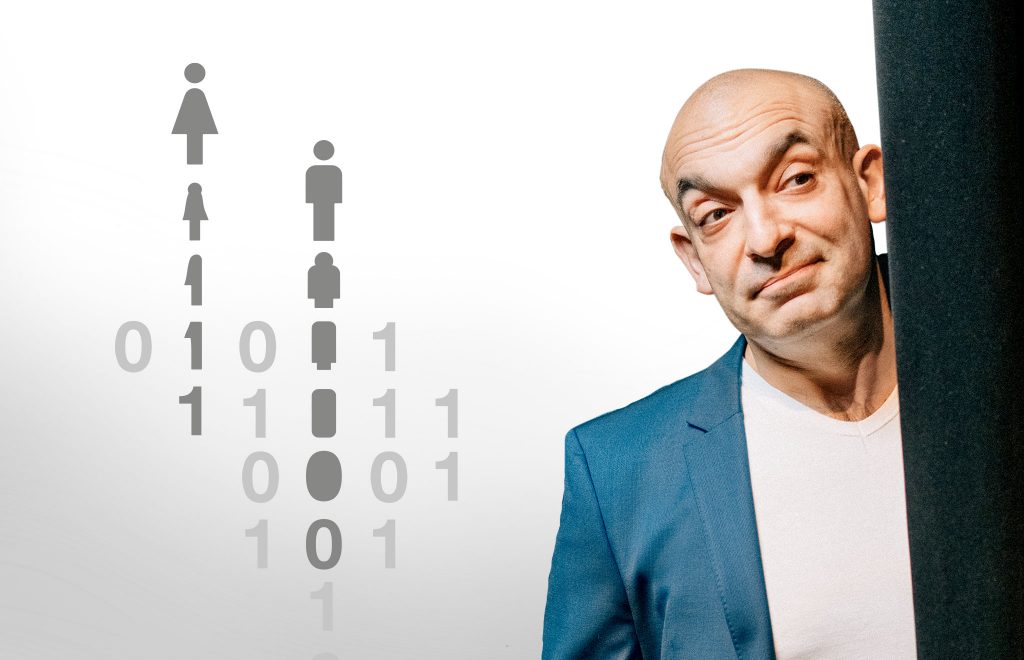
“Oil of the 21st century” is a term we often hear to describe data. With every click, companies are sucking people dry of their data, often by using the most innovative and refined techniques. The volume of data collected keeps increasing and, while companies keep on getting richer, the average citizen is getting poorer – and more transparent. What’s going on here?
In her Duet Interview with the multi-talented and celebrated cabaret artist Django Asül, Dr Caldarola, author of Big Data and Law, discusses the current developments of data as big business.
It’s open season on collecting data among the big companies. In 2018 alone the global data volume was estimated to be about 33 Zettabytes while current trends lead analysts to predict an increase of up to 175 Zettabytes. What are large corporations doing with the data of people, where is it ending up, who’s making money out of this? Has data become the latest and cheapest raw material for companies to use or are people simply being exploited?
Django Asül: Companies are probably not collectors in the true sense of the word, meaning they are surely not going to proudly present their collection. It seems obvious that money is meant to be earned by collecting data, either by tech enterprises offering advertising platforms or by producing corporations wanting to sell their data sets.
Exploitation is perhaps a little bit too strong a term since no one is being forced to give away their data. This type of raw material is, however, inexpensive and easy to store. If we reach the logical conclusion of this situation from the point of view of making some cash, there is really only one possible outcome: There truly are a lot of people out there who are totally susceptible to advertising. If that were not the case, all these tech giants would not be spending tons of money on advertising. In the end, since this collecting mania is not going to stop, and people don’t seem to be avoiding it or going offline, we seem to have a lot of satisfied players in this game.
Large corporations draw us in by tempting us with discounts or supposedly “free” services, such as, for example, messenger or telephone services, digital storage space and so on. Up until now, one of life’s lessons has always been that you can’t get something for nothing. Has something changed?
There have always been polls to garner information about potential or current customers, which, not infrequently, were accompanied by real or supposed advantages or gifts. People are always going to find the idea of something free or a product accompanied by a bonus or reward appealing. The big difference is that now contact has been established which is both direct and permanent, owing to mobile phones. It’s like always leaving your door open and any salesman can look inside. Digitalization has given a new dimension and depth to this type of activity. But here too we have to say that people willingly participate in these sorts of things. No one can pretend to be a victim here.
Companies, which basically suck the data off people, always have a lot of tricks up their sleeve or, more to the point, supposed user-advantages which they deliberately put in place. Examples for this type of strategy include using facial recognition as a “key” to unlocking and driving cars, talking household appliances which learn and improve on their own, virtual voice assistants, smart watches and so on. Will we soon be born with two identities- a human one and a digital one? Or will we be needing a digital clone in the near future?
No, for the moment, the digital version of ourselves is more than enough. After all, the analogue person is not nearly as reliable and predictable as his or her digital twin. If you think how many people are already overwhelmed by their day-to-day lives, then they would probably be happy to outsource the validation of their existence to their digital twin.
This is one way to enjoy the finer things of life. After that, it is irrelevant whether the digital twin can unlock a self-driving vehicle or how often this is done. The only important thing is that a car was purchased.The manufacturer does not really ask for more from the client.
My opinion is:
“Whoever pays too much attention to the digital world and not enough to the real one, deserves what s/he gets!”
Django Asül
Do you think people know or are in a position to measure what they actually pay for when they use apps? Or expressed differently, are people responsible enough to see through the aims of these big companies? Yuval Noah Harari writes in his book, 21 Lessons for the 21st Century, “For every dollar and minute we invest in improving artificial intelligence, it would be wise to invest a dollar and a minute in advancing human consciousness.”
Mr. Harari’s theory would be correct, if people wanted to lead a life which they had determined themselves. But it seems like many find it uninteresting or too demanding to control the air space of their own lives or even to keep hold of it. They prefer being permanently entertained or distracted. It would come as a real shock if people were confronted with their conscious selves. The number of global citizens who tend to think like Mr. Harari or correspond to his ideal human is probably a lot smaller than we would like.
Every user is becoming more and more visible, with every app that a s/he downloads, all the while making the one controlling the data richer. Why are there so many large companies who own a lot of data, pay so little in taxes and with so little material capital become wealthy? Where is this leading and where does it end?
With regard to your observation, the philosophies of international companies come into direct conflict with national fiscal policies. All these corporations can certainly count on governments focusing on what is in it for the relevant country. If, for example, the big tech companies have their headquarters in the U.S., then the American government is really not going to care if these companies have to pay a lot of taxes in Europe or Asia. And even in Europe it’s hardly a difficult matter to play off one country against another. In Ireland, taxes are lower while the Netherlands offers interesting IP-boxes. This means that European headquarters tend to be located in Dublin while first pushing their revenues through to Amsterdam. The companies are not to blame. They are merely taking advantage of the existing rules. However, the European Union has, in this regard, clearly demonstrated that it is anything but a union. Where all this leads to is quite clear: The Big Companies are hardly being taxed at all, and the governments are acting as if nothing could be done to avoid this situation.
Do you think borderless transferring of data is acceptable- especially if we keep in mind that countries handle data differently depending on their culture, ethics and government forms? How long will this continue?
If I freely give my data to a global concern, then I really can’t be surprised if the very same data is being used at an international level. I would rather ask, at the risk of sounding naive, what is being achieved. The South Korean branch of a German or American car manufacturer can have a lot of information on me, if you look it at that way, so long as they have enough room on their server or in the cloud. And how long this continues is a relative matter. This answer is as long as the consumers are willing to put up with this situation. A big company often behaves just like an individual person: We like to push things to the limit until we are being sanctioned in some way or the shit has hit the fan and we are stuck dealing with the shit storm.
Yuval Noah Harari writes in his 21 Lessons for the 21st Century that “Big data algorithms could create digital dictatorships in which all power is concentrated in the hands of a tiny elite, while most people suffer not from exploitation but from something far worse – irrelevance. Has that already come to pass or will it happen?
The individual person has most certainly become irrelevant because, as far as these big companies are concerned, they don’t care about the well-being of a single person, but rather about their business model. Furthermore, as long as global politics cannot reach a consensus concerning these matters, then nothing is going to change. Tech companies are not exactly set up to be democratic organizations. Once a CEO has made a certain decision, its repercussions can resound throughout the world in a matter of minutes. Meanwhile, in a democracy, once a resolution has been made, it is often a slow and painful process getting to the final outcome. In this regard, big companies have a real advantage over democratic governments, and they will certainly not hesitate to make use of it. If the boss of Twitter decides to shut down the Twitter account of the U.S. president, then he just does it. That action was probably not a single or even a final demonstration of power, but really just represents the beginning.
Mr Asül, thank you so much for sharing your opinion, your thoughts and your view on our present and future digital world.
Thank you, Dr Caldarola, and I look forward to reading your upcoming interviews with recognized experts, delving even deeper into this fascinating topic.
